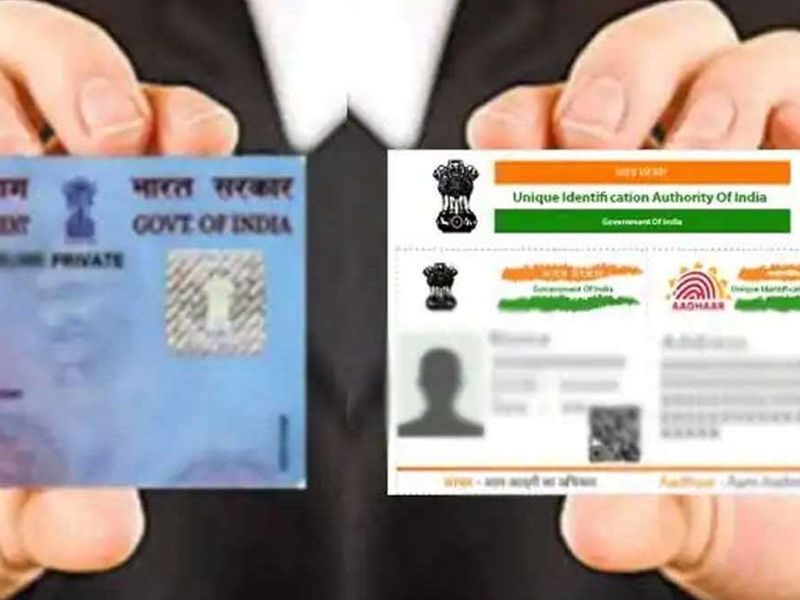New Indian income tax rule: PAN card now mandatory for certain cash deposits, withdrawals
Dubai: After the Indian government amended cash limit rules earlier this year, it also made PAN or Aadhaar number mandatory for certain cash deposits and withdrawals. But does this apply to NRIs?
India’s Central Board of Direct Taxes (CBDT) issued a notification that cash deposits and withdrawals in a financial year of over Rs2 million (Dh93,041) when opening of current account or cash credit account with a bank, requires all Indians to furnish PAN or Aadhaar.
(A Permanent Account Number or PAN card, issued by the Indian Income Tax Department, and an Aadhar, a government-issued 12 digit identification number, are two ID documents assigned to each Indian citizen who either resides or looks to reside in India, while transacting amounts in Indian rupees.)
What does the statement mean and what has changed?
As per the notification, ‘every person, at the time of entering into a transaction [must] quote his permanent account number (PAN) or Aadhaar number and every person, who receives such documents, shall ensure that the said number has been duly quoted and authenticated’.
What this means is that prior to this government alert, your bank was already required to ensure that such transactions have PAN. But now your bank will be required to keep the PAN in the bank’s records and inform the same to the Income tax department regarding such financial transactions.
Earlier, as per income tax norms, PAN was mandatorily required in case of cash deposit exceeding Rs50,000 (Dh2,325) in a single day, but no annual aggregate limit for cash deposits was given before. While there was no limit for cash withdrawal, which has been prescribed now.

What if one does not furnish or have PAN? Are there fines?
The notification specifies how ‘every person’ making a cash deposit and withdrawal aggregating to Rs2 million (Dh93,041) or more in the financial year in one or more bank accounts are to reveal their PAN.
If not, he or she would not be able to perform such transactions. Paying or receiving cash above the limits set is also punishable by a steep penalty of up to 100 per cent of the amount paid or received.
Individuals who do not have a PAN need to apply for a PAN at least seven days before entering any transaction of above Rs50,000 (Dh2,325) a day or above Rs2 million (Dh93,041) a financial year.
Why did the changes come into effect? Are there more changes?
The Income Tax department, along with other central government departments, has been updating and amending rules to reduce the risk of financial fraud, illicit money transactions and other money crimes over the past few years, and tax experts suggest this move in line with this.
“The government also monitors receiving cash worth more than Rs200,000 (Dh9,303) to restrict the use of cash in high-value transactions. So, a person cannot accept more than Rs200,000 (Dh9,303) in cash, not even from close family,” said an independent tax consultant Brijesh Meti based in India.
Since the rules are applicable since May 26, experts also opine how authorities may need to clarify whether the transactions are undertaken prior to May 26, shall be considered for computing the aggregate value of Rs2 million (Dh93,041) for this financial year or not.

Does this apply to Non-Resident Indian (NRI) transactions?
While PAN may be required, this rule doesn’t apply to NRIs when it comes to having Aadhar, clarified Dixit Jain, Managing Director at The Tax Experts DMCC.
“It is not mandatory for NRIs, as NRIs are not mandatorily required to have an Aadhar card, even though they can easily apply for one when they come to India,” Dixit Jain added. “However, PAN may be required.”
In other words, more than this rule change impacting NRIs who would have already added PAN details to their bank accounts, as initially required by banks, it is aimed at getting banks to keep the PAN on record, and not seek PAN with each transaction, and officially declare any withdrawals over Rs2 million.
“India’s income tax laws prohibit cash transactions above Rs200,000 (Dh9,303), which is also the limit when accepting donations from a single person on a single occasion,” Meti added. “Those who accept hard cash over this amount violating this clause may face a penalty equivalent to the amount received.”
“In a property transaction, the maximum hard cash allowed is also Rs20,000 (about Dh1,000). The limit remains the same even if a property seller accepts an advance.”
Source:https://gulfnews.com/your-money/taxation/new-indian-income-tax-rule-pan-card-now-mandatory-for-certain-cash-deposits-withdrawals-1.1660917543823
Large groups can set up a tax group to minimise their compliance cost
As required by International Financial Reporting Standards (IFRS), groups are required to prepare consolidated financial statements where inter companies’ transactions are eliminated, and losses of one entity are adjusted against the profits of the other entities
Large businesses are structured as a group for better management and reporting purposes. Moreover, companies wanted to enjoy the tax benefits and reliefs which are generally available to the groups, so this is another reason that large businesses are organized in the form of groups. Tax planning and minimising the compliance cost are other critical factors for which large entities assemble themselves as a group.
As required by International Financial Reporting Standards (IFRS), groups are required to prepare consolidated financial statements where inter companies’ transactions are eliminated, and losses of one entity are adjusted against the profits of the other entities. The net profits of the groups are adjusted to arrive at the taxable profits of the group.
Keeping in view the above factors, tax grouping has been proposed in the Corporate Tax Public Consultation Document, which suggests that eligible businesses would be able to create the tax groups and transfer their losses between group companies that are seventy-five per cent or more commonly owned.
It has been proposed in the document that the group of companies which are residents of the UAE and whose ninety-five per cent shares and voting rights are held by the parent company can form a tax group. In addition, a subsidiary can also be part of the tax group if it is owned indirectly by the parent company and other subsidiaries own at least ninety-five per cent of its shares. The branch of a parent company or group subsidiary company can also be a part of the tax group.
To form a tax group, it is compulsory that neither the parent company nor any of the subsidiaries can be an exempt person or a free zone person that benefits from the zero per cent corporate rate, and all group members must use the same financial year.
Based on the above-proposed requirements, the following businesses cannot be part of the tax group:
• Non-resident companies
• Companies which are in the free zones and enjoying zero per cent corporate tax
• Entities in which the parent company or other group companies are not holding at least ninety-five per cent shares and voting rights.
• The companies which have different financial years.
The group will be formed with the mutual consent of all entities, and the entities that want to be part of the tax group will submit a notice signed by all relevant entities to the Federal Tax Authority (FTA). The FTA will review the application and, upon satisfaction of the criteria, will process the application by issuing one tax number to the tax group.
The tax group will be considered a single entity for corporate tax purposes, and the parent entity will be liable to prepare consolidated financial statements. While consolidating the financials, the transactions between the group entities will be eliminated, and the losses of one entity will be adjusted against the profits of other group entities/entities.
The group entities that do not meet ninety-five per cent ownership criteria or the entities that meet the criteria but do not want to be part of the tax group, such entities can still transfer their losses from one group company to another group company, provided certain conditions are met. As discussed in our previous article, the tax losses of one group company can be adjusted against the seventy-five per cent of taxable income of other group companies that would be receiving the losses. Moreover, the group companies that are exempt or subject to a zero per cent corporate tax regime, would not be allowed to transfer their losses against the profits of other group companies.
The parent entity would be responsible for the administration and the payment of corporate tax on behalf of the tax group, and where the parent defaults, then each member of the tax group will be jointly and severally responsible for the payment of corporate tax. This joint and several liabilities can be limited to the specific members of the group with the approval of the FTA.
The large groups should check the ownership of the group entities and the status of their tax residency. If the entities are eligible to be elected to the tax group, then business owners should align their tax years so that the entities can be added to the tax group to minimise the tax impact and reduce the administration cost. Where the businesses are finding any difficulties in assessing the eligibility of the entities to be added in the tax groups, they should take professional advice for better planning.
Source:https://www.khaleejtimes.com/business/large-groups-can-set-up-a-tax-group-to-minimise-their-compliance-cost

